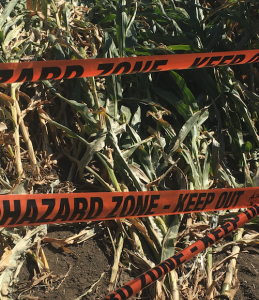Do you have potentially harmful junk within your property or business premises? Often, there are gray areas when it comes to toxic debris, and they may end up in the drainage, sewers, yard, or you may end up mixing them with clean recyclables. Hazardous waste is any substance, whether solid, liquid, or gas, that can cause substantial and irreparable harm to human health or the environment. Every time you generate waste, including household, it is imperative to understand the type of junk you are handling. This hazardous waste disposal guide can help protect you and your community.
Types of Hazardous Waste
The first step to take when handling hazardous materials is to understand the toxic waste type and nature. The Environmental Protection Agency (EPA) puts hazardous waste into four categories. Hazardous waste can be;
- Ignitable. This type of waste is highly flammable and can catch fire. Examples of these dangerous waste include gasoline, kerosene, propane containers, paint, petroleum waste, etc. The containers used to store these products are hazardous, too, and you need to be careful while handling them.
- Corrosive. Any substance/product that can corrode metal and other materials or dissolve the flesh is hazardous. These substances are often in a liquid state (acid/base), and examples are some cleaning products you have at home that contain acid or base, battery acid, and rust removers. Handle products with strong acids or bases carefully.
- Reactive. Waste that can quickly explode under certain temperatures or produce toxic gases and fumes is also hazardous and falls under the reactive category. Mostly, these wastes contain cyanides or sulfides. They can also release poisonous fumes—gases or vapors when in contact with water. An example of this waste is the product stored in aerosol containers.
- Toxic. These are lethal wastes that can be fatal if you ingest or dump them on the ground. Also, they can release harmful substances into the groundwater. Wastes that contain mercury, lead, or any other heavy metals are toxic. Some of the poisonous wastes can be paints, oils, or wood waste with Penta.
With the above breakdown, it is no surprise that you may have some under your kitchen sink at home, in your garage area, office, or even on construction sites. The key, however, is to understand proper hazardous waste disposal and storage.

How to Store Dangerous Materials
Collecting and storing common waste may be as simple as pick up and toss. However, you need to be cautious, even if it is household hazardous waste. Once you understand that you are handling hazardous substances, take the measures below to ensure your and others’ safety, and protect the environment.
- Keep hazardous waste in their original containers/packaging with labels intact.
- Never mix these materials or substances. Mixing the waste for disposal can damage recyclables or react when you combine two or more hazardous materials.
- Keep hazardous waste out of reach for children and pets.
- Be careful when handling empty containers with hazardous waste residue.
Hazardous Waste Disposal Tips
-
Follow handling and disposal guidelines on the label.
Products come with labels that have guidelines on how to use and safely discard substances after use. You must read these guidelines to understand how to handle its waste safely.
-
Understand your local regulations concerning hazardous waste.
It’s important, however, to know that each county has regulations on how to dispose of hazardous waste. Learn about these rules before you attempt to dispose of dangerous waste. You can check on your county website or ask your waste management company for more hazardous waste information. Call American Reclamation if you need information on places you can take hazardous materials, as these cannot be dumped in a dumpster container.
-
Let a waste management company handle your hazardous waste.
The best way to guarantee the safe disposal of hazardous waste is to hire a professional that specializes in disposing of hazardous materials. Waste management and recycling facilities can help you pick up and dispose of dangerous waste at a small fee. You can also ask your local authority if they offer to drop off services for hazardous junk.
Hazardous waste disposal can be a hassle, but it’s vital to your safety and the safety of your community that it is done properly.
